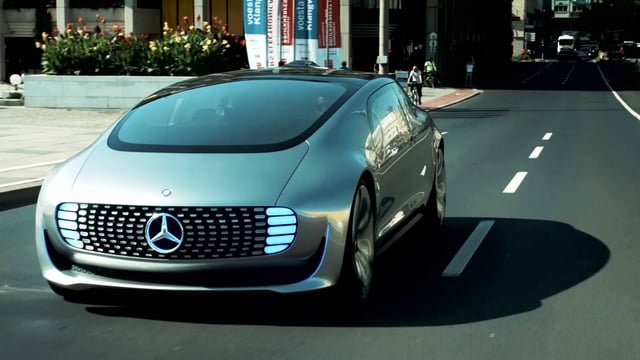
A hundred years ago transportation vehicles were a bit shit because they perceived and reacted to their surroundings autonomously without offering us sufficient control. Then automobiles were invented and they were a bit shit because they required drivers to exercise control. Now, self driving cars have arrived and they're brilliant because they can perceive and react to their surroundings autonomously. But will they transform life as we know it or merely make road rage more difficult when we're being cut off by an empty Tesla?

Early self driving vehicles generally only had 1 horse power
Safety
Currently traffic accidents account for over 30,000 fatalities a year in the U.S. alone. As driverless car technology matures, expert estimates have them at 90% safer than their human controlled counterpart. Unless, like me, you're driving while Asian, then it should be closer to 97% safer. The fact is human error accounts for the overwhelming majority of traffic accidents and autonomous driving technology is not limited by our physical shortcomings.
There are also difficult moral questions to answer when programming the self driving AI: Should the car avoid hitting pedestrians at the risk of injuring its passengers? Should it value the life of a child more highly than that of an adult if it is swerving out of control and has no choice but to hit one of them? When the light turns green, how long does it wait before blasting its horn at the vehicle in front? These are all very important and difficult moral choices that manufacturers and legislators will have to make. And I don't know about you, but I'll soon be pushing around an empty pram wherever I go on foot just in case.
Efficiency
The average vehicle spends just under an hour a day on the road which is rather inefficient unless you steal cars for a living. Self driving cars will allow you to get off at your destination while it goes off on its own to find parking or better yet, pick up passengers and work for you until you summon it again. You'll literally be able to pimp your ride out. Hopping onto an Uber will only be a fraction of present day prices as human labor costs are omitted.
As more and more automated vehicles hit the road, traffic congestion will improve greatly. Congestion occurs when there is significant delay between human drivers reacting to the movement of other vehicles on the road like when I'm texting behind the wheel and didn't notice the traffic move up ahead of me. But if most of the vehicles on the road are autonomous, they can communicate between each other and accelerate and decelerate as one simultaneous unit, greatly reducing delay and the need for a margin of error. Intersections will play out as if everyone was a fire truck.

Don't worry: if you're a pedestrian and get hit, you'll just have to go back to level 1 again
Environmental Impact
Most of the upcoming autonomous vehicles run on an all electric engine. Even in its infancy, this technology is proving to leave a smaller carbon footprint than their petrol gulping counterparts (comparing emissions based on the electricity required to charge the car). This gap will only grow as battery technology improves over time. Also worth noting is that electric engines are much smaller than internal combustion engines, leaving far more room for storage. This is a godsend if you're anything like me and are also struggling to fit some of the ladies you pick up into the trunk these days.
Conclusion
While some of us are a little nervous before this new technology, I for one can't wait until the day roadside breath tests are replaced by drive through liquor stores. I may not be able to afford a self driving car right away, but I'll be content to just go to the gym and jump on a self riding exercise bike.
If you enjoyed this piece please Upvote, Resteem and Follow me @trafalgar
